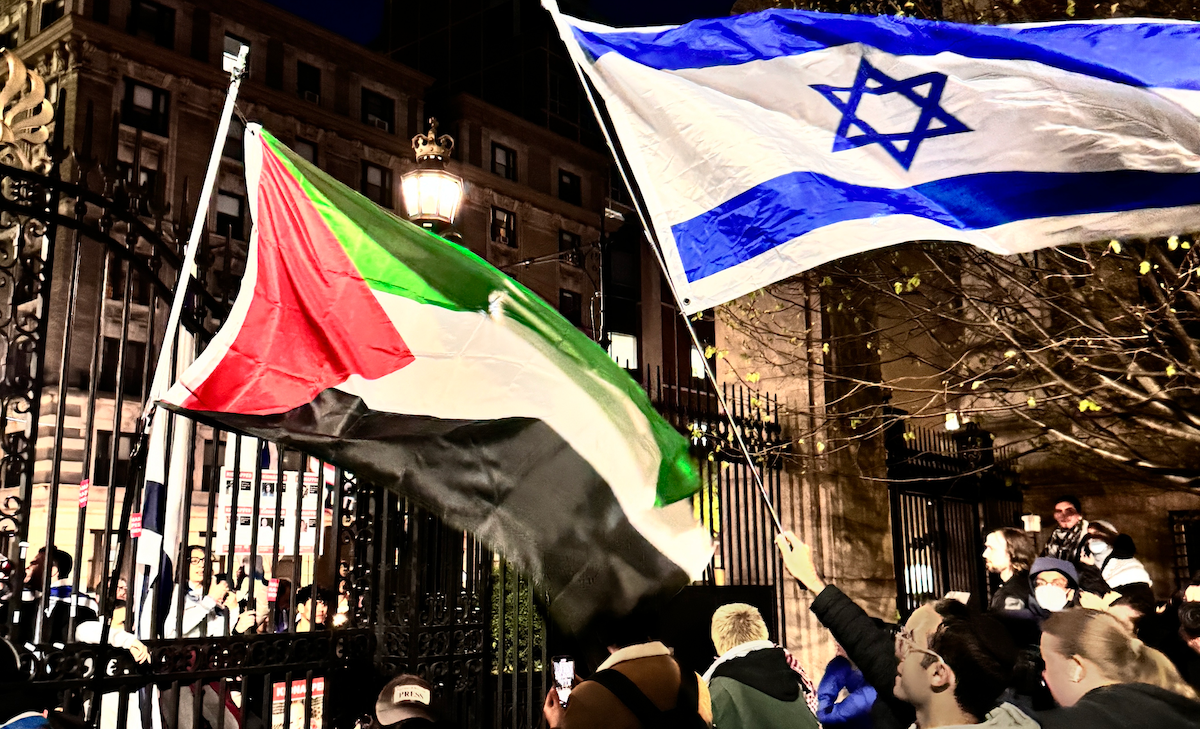Where do we draw the line between free speech and a safe space? That’s the core question posed by the protests and the arrests raging on campuses right now over the Hamas-Israel war.
Of the many complex, painful issues contributing to the tension stemming from the Oct. 7 Hamas massacre and the ongoing Israeli attacks in Gaza, dividing groups into two basic camps, pro-Israel and pro-Palestine, is only making this worse. Call it a category problem.
What do these terms, pro-Israel and pro-Palestinian, even mean? Are they helpful, or is it time to stop using them altogether?
The fundamental flaw with these terms is that they conflate support for the existence of a country with support for the government or leaders in power. For example, does pro-Israel mean support for the existence of the state of Israel, or for the policies of the current government? They are wildly different things.
Before Oct. 7, there were already massive rallies against Benjamin Netanyahu’s government, and they have only grown louder. Are the people protesting him anti-Israel? Of course not. Patriotism and partisanship are not always the same thing. The same person who supports the right of Israel to exist – and may even fight for Israel against a group like Hamas – might just as well protest the Likud government, support a two-state solution, and want a cease-fire in Gaza. Read the popular Israeli newspaper Ha’aretz and see the diverse views and critical opinions on Israeli policy.
The same is true for the Palestinian cause. Supporting a viable, safe, prosperous Palestinian state is the normative position of most governments around the world, but that does not mean supporting the murderous agenda of Hamas, which is listed as a terrorist organization in Canada and the US. Palestinians and millions of others who are deeply furious at the Israeli actions in Gaza and Netanyahu’s policies should not necessarily be equated with supporting Hamas and their eliminationist goals. Are you anti-Palestinian if you do not support Hamas? Of course not.
The same is true anywhere. No one asks if you are, say, pro-France, pro-Italy, pro-Canada, or pro-America when they are debating a specific policy. Instead, they ask if you support a particular position or action of the government in power. Reducing this to a conflict about the right to exist as a country – for Israel or Palestine – is a road to endless war. Making this, as it ought to be, about a conflict of policy and leadership – however deadly it is right now – is the path toward resolution.
With the war in Gaza raging, it is understandable that people are being forced to take a side: Are you pro-Israel or pro-Palestinian? That gives the patina of a firm moral stance, but it plays into the hands of the most radical forces on both sides who strategically want to co-opt the reasonable middle ground for their own purposes.
Among the great propaganda victories of this war are the Hamasification of the Palestinian cause on one side and the Netanyahuization of the Israeli voices on the other (and no, this is not meant to make a false equivalence between the two, but simply to describe the political dynamics).
That’s why you see, say, signs supporting Hamas on campuses and chants that celebrate Oct. 7. That’s why there is a rise in antisemitism or, on the other side, a refusal in some places to acknowledge the deaths and suffering of the people of Gaza.
The category problem supports this dynamic and undermines the rational middle ground where, for generations, there has been a genuine if fruitless effort to find a peaceful two-state solution. It is now parodied as a sinkhole of mushy naivete, offensive bothsidesism, and false equivalencies, and protesters and their slogans shout it down. But it remains the only hope.
There isn’t a lot people can do in the face of such a long-standing bloody conflict – though joining protests is certainly one thing. But perhaps adhering to the middle ground and avoiding the broad categories that help radicals on each side is a small but effective action.
You might think that the one place you’d find this middle ground would be on university campuses, where details, nuance, and debate are supposed to thrive. That’s not happening. On many campuses today, it is now impossible to distinguish between free speech and safe space.
